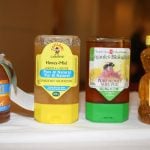CORRECTION, Oct. 7: Canada’s supply managed sectors can expect to lose $4.3 billion to foreign interests in the 15 years following the implementation of the Trans-Pacific Partnership.
After years of negotiations, Australia, Brunei, Canada, Chile, Japan, Malaysia, Mexico, New Zealand, Peru, Singapore, the U.S. and Vietnam reached an agreement Monday morning, which includes granting access to 3.25 per cent of the Canadian dairy market. Different aspects of the trade deal are expected to be phased in over the coming years.
Egg farmers will lose 2.3 per cent of their market, and chicken producers will see a 2.1 per cent reduction. Turkey farmers and those producing eggs for broiler hatching will see a two per cent and 1.5 per cent reduction respectively. Market loss is also expected to reduce the value of existing quota.
Read Also

U.S. grains: Chicago soybeans dip in choppy trading as Greenland dispute and global supply weigh
Chicago | Reuters – Chicago corn and soybeans slipped in choppy trading on Tuesday as tensions between Washington and Europe…
“When we get some more details and have an opportunity to do more analysis we’ll be in a better position to know exactly what it means for us,” said Cory Rybuck, general manager of Manitoba Egg Farmers.
“But any time you lose some of the market by opening up access it’s a concern. With eggs at least we’ve experienced steady growth over the last nine years, so hopefully that will continue and possibly mitigate the effects of this or any other trade deal.”
Ed Kleinsasser, chair of Manitoba Egg Farmers’ board of directors, said he was relieved the trade agreement didn’t give more access than it did.
“It is a very complex agreement that is going to affect a lot of different industries,” said the manager of Sunnyside Colony’s poultry operations.
Details still unknown
David Wiens, chairman of the Dairy Farmers of Manitoba, also said that it will take more time to parse out the details and assess the TPP’s full impact. But he was clear that the multilateral deal is a loss for Canadian dairy farmers.
“Obviously we’re not happy with the fact that access was given to dairy in order to conclude the deal, those increased imports will be a loss of us — this milk is not going to be produced in Canada, it won’t be produced in Canada again,” he said. “It’s revenue that will be lost on a perpetual basis.”
To compensate farmers for market loss, the Canadian government has announced a series of programs to mitigate the financial impact of the trade deal. This includes an Income Guarantee Program, which the government said, “will keep producers whole by providing 100 per cent income protection to producers for 10 years.”
Income support assistance will then continue on a tapered basis for an additional five years, for a total of 15 years. The government has said $2.4 billion is available for this program.
Over the course of those year 15 years a typical dairy farm could be eligible to receive about $165,600 in compensation or just over $2,000 per cow. The average chicken farm could receive as much as $84,100 over the same period and an egg farm could be eligible for $71,500 in compensation.
The Income Guarantee Program could provide as much as $191,700 to a typical hatching egg operation over the same period.
Prove losses?
Compensation is automatically triggered and producers won’t have to prove “demonstrable loss” before being compensated, said a senior official with Agriculture and Agri-Food Canada.
“The annual payments will be linked to the amount of quota each producer holds and will be based on the estimated sector-wide impact on their income. Income impacts are compared by comparing prices and production under conditions with the TPP and CETA in place relative to price and production without those payments,” the official explained.
A Quota Value Guarantee Program will also be established to protect producers selling their quota in the 10 years following the TPP’s implementation, with $1.5 billion in funding being set aside.
Two additional programs — a Processor Modernization Program and a Market Development Initiative — will also be established to support supply managed commodities as they adjust to the trade deal.
Wiens said the federal government had assured dairy farmers throughout the process that compensation would be provided should greater access be given, and that the government has kept its word.
“So I am somewhat encouraged that the government recognizes the contributions that we in the dairy sector make to the economy — and especially the rural economy — of Canada by providing this compensation package and other mitigation measures,” he said. “The government did what it had to do so this agreement could be signed.”
Dairy Farmers of Canada president Wally Smith said he recognized that the Canadian government fought hard against the demands of other countries when it came to supply-managed sectors.
“We have come a long way from the threat of eliminating supply management,” he said. “The government has clearly understood the importance of supply management dairy farms in rural Canada and the economic activities they generate.”
Questions about the quality of new imports remain, however, with some raising the point that U.S. dairy producers may make use of bovine growth hormone, a growth promotant not approved by Health Canada.
An official with the department confirmed that the importation of products produced with bovine growth hormone is not restricted.
Wiens noted that food quality was one of the key issues for 87 per cent of respondents in a recent Canada-wide poll.
“And that’s exactly what can be lost by giving this access,” he said.
CORRECTION: This article originally indicated that producers would have to prove “demonstrable loss” in order to receive compensation. We regret the error.
— Shannon VanRaes is a reporter for the Manitoba Co-operator in Winnipeg. Follow her at @ShannonVanRaes on Twitter. Includes files from Allan Dawson of the Co-operator.















